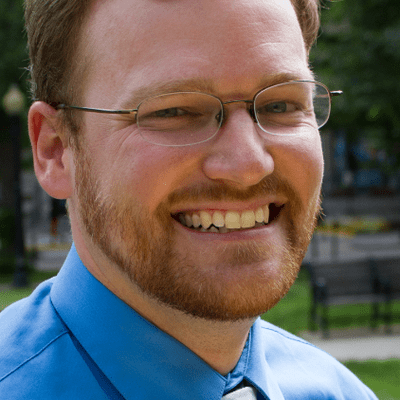Introduction
He may not be nicknamed the “Big Unit” or able to throw a baseball 100 mph, but Randy Johnson is pitching campaign finance disclosure in ways few Republicans do.
“I don’t see anything inconsistent with full, prompt disclosure and being a Republican,” Johnson, who served as the assistant general counsel at the Federal Election Commission for a year in the 1970s, told the Center for Public Integrity.
“I don’t feel out of place,” added Johnson, now a commissioner in Hennepin County, Minn. “The people who are opposing fuller, more open disclosure are the ones who ought to be feeling out of place.”
First elected in 1978 and re-elected 10 times since, Johnson holds the distinction of being the longest-serving commissioner in the Minnesota county since it was founded in 1852.
In Washington, D.C., Republican lawmakers, led by Senate Minority Leader Mitch McConnell, R-Ky., have repeatedly blocked Democratic-sponsored legislation that would add new reporting requirements for those that fund political ads. McConnell has argued that the plan is a tactic to intimidate Democrats’ political opponents.
And the FEC, where Johnson used to work, often deadlocks on the most contentious campaign finance issues before it, with Republican commissioners typically allied against expanding disclosure requirements. The six-member commission — five today because of a vacancy — is structured to be evenly divided between Republican and Democratic appointees.
There has been a surge in political ad spending by nonprofits, which are not legally required to publicly disclosure their donors, in the wake of the U.S. Supreme Court’s 2010 Citizens United decision.
The Center for Responsive Politics calculated that more than $300 million in political spending was reported to the Federal Election Commission by groups that did not disclose their donors during the 2012 election cycle alone. Conservative groups accounted for more than 80 percent of these expenditures.
And during the 2010 midterms, nonprofits organized under Section 501(c)(4) of the U.S. tax code outspent super PACs by a 3-to-2 ratio, a joint Center for Public Integrity and Center for Responsive Politics investigation found. Super PACs are required to disclose their donors.
This trend troubles Johnson.
“If you really want to influence public policy issues … if you want to be a major actor, I think you have to be willing to let people know that you are trying to be a significant actor,” he said.
Added Johnson: “It has the potential to get worse if there are even larger amounts of money that go into supporting candidates or opposing candidates secretly.”
Johnson also warned that the flow of unlimited money and secret money into electoral contests doesn’t stop at the federal level.
“I’m becoming even more concerned about what the effect could be in judicial elections,” Johnson said.
And at the county level?
Johnson said he’s also wary — though he hasn’t seen any problems yet.
“The First Amendment is extremely important to me,” said Johnson, stressing that free speech and campaign finance disclosure are not incompatible.
“Let everybody put their ideas into the marketplace and usually the better ideas will prevail,” he continued, adding that when “only one group of people have the means to put their ideas in the marketplace, I’ve got less confidence that the best ideas will prevail.”
Read more in Money and Democracy
Primary Source
Tester offers e-filing amendment to budget bill
‘We are pushing for a vote,’ Montana Democrat’s spokeswoman says
Primary Source
Oil industry trade group takes to D.C. airwaves
American Petroleum Institute defends tax incentives in ad blitz

Join the conversation
Show Comments